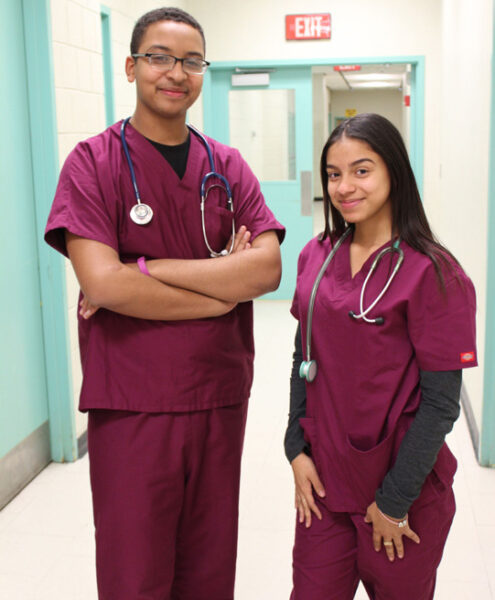Students learn the fundamental principles of patient care as well as the necessary skills to assist professionals in the clinical environment at a medical facility. Students learn to measure vital signs, medical asepsis, infection control, patient education, assisting with varied medical procedures, specimen collection, preparation, point of care testing and processing. Students have the opportunity to practice authentic skills in clinics and hospitals.
This program provides training to students in all aspects of clinical and administrative medical assisting. Students gain fundamental skills in office management and clinical assisting, which will enable them to assist a physician or other practitioner in a medical setting. Emphasized throughout the program are professional ethics, safety practices, and effective communication. Administrative responsibilities may include communication with other allied health professionals, patients and their caretakers, scheduling procedures and appointments, billing and insurance, reception, medical record documentation, and inventory management.
Medical Assistant (in specialty areas i.e., pediatrics, oncology, etc.)
Phlebotomist
Registered Nurse
Occupational Therapist
Insurance Claims Specialist
Operating Room Assistant
Radiology Technician
Medical Office Manager
Medical Lab Assistant/Technologist
